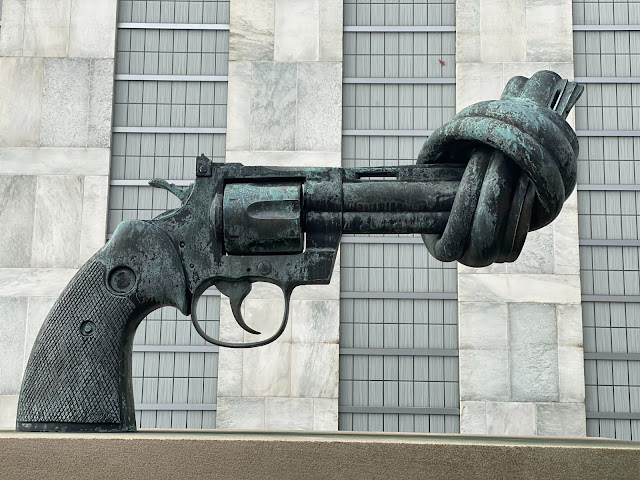The guns of August or the “Woke” side of history (op-ed)
 |
| Photo by Maria Lysenko on Unsplash I noticed a recent CNN headline that said: What is Black August and how is it different from Black History Month? I knew “Black August” was the title of a 2007 biopic of George Jackson. Jackson was convicted of armed robbery in 1961 and became a political activist in San Quentin State Prison. In 1970 Jackson and two black prisoners were charged with murdering a white prison guard. That same year, Jackson’s teenage brother Johnathan was killed in a police shootout after he stormed the courthouse and took a judge hostage in an effort to secure his brother’s release. On August 21, 1971 a gun was smuggled to George Jackson, Jackson took a prison guard hostage, forced the guard to open several jail cells, then Jackson was killed during the prison escape. Jackson authored Soledad Brother: The Prison Letters of George Jackson and co-founded The Black Guerrilla Family while in prison. The BGF characterized itself as a black Marxist-Leninist revolutionary organization whose goals were to promote black power, prison reform, and overthrow the US government, but, in actuality, it was a prison/street gang known primarily for criminal activity. I
immediately wondered, has “Black August” been a commemorative month before or
after the 2007 biopic. In other words,
was the movie named after a preexisting month-long celebration or did the
inspiration to start a commemorative month develop after the film Black August
was made. It’s hard to tell, but the
earliest promotion I found for Black August was in 2012, on the website
Critical Resistance. Critical Resistance
is an organization that is dedicated to eliminating prisons, policing, and
surveillance. The site said: For many
of us fighting the ravages of the prison industrial complex, George Jackson is
a source of inspiration and discipline.
The month of August bursts at the seams with histories of Black resistance
– from the Haitian Revolution to the Nat Turner Rebellion, from the Fugitive Slave
Law Convention and the foundation of the Underground Railroad to the
Brotherhood of Sleeping Car Porters, from the March on Washington to the Watts
Uprising, from the births of Marcus Garvey, Russell Maroon Shoatz, and Fred
Hampton, to the deaths of W.E.B. Du Bois and George Jackson’s own younger brother
Jonathan. We celebrate Black August,
commemorating the anniversary of George Jackson’s death while understanding his
life as a revolutionary. Obviously, there are more
details to the George Jackson story. If
you’re a revolutionary romantic watch the movie Black August, but if you’re not,
watch the documentary: Day of the Gun. But what caught my
attention in CNN’s headline was the distinction made between “Black August” and
Black History Month. I was reminded of
the distinction between Juneteenth celebrators.
Some celebrators simply honor the emancipation of slavery, others refer
to Juneteenth as Black Independence Day and celebrate Juneteenth instead of the
4th of July. The former is
festive and the latter is antagonistic. There’s a similar distinction between
Labor Day and May Day (International Workers’ Day). Labor Day celebrates
organized labor while May Day commemorates the 1886 Haymarket massacre in Chicago,
where a bomb blast and gunfire between police and workers on strike left seven
police officers and four laborers dead. There appears to be an
effort to make a similar distinction between Black History Month and Black
August. CNN quoted an activist that said
“Black History Month is beautiful, but unfortunately like all black culture, it
has been co-opted by neoliberal capitalist and we rarely learn about all the
contributions black radicals have made in resistance to this settler colonial
nation state.” Former President Barack
Obama cautioned about being on the wrong side of history, but the “woke” side
of history is all about throwing caution to the wind. First published in the New Pittsburgh Courier 8/12/2020 |


Comments
Post a Comment